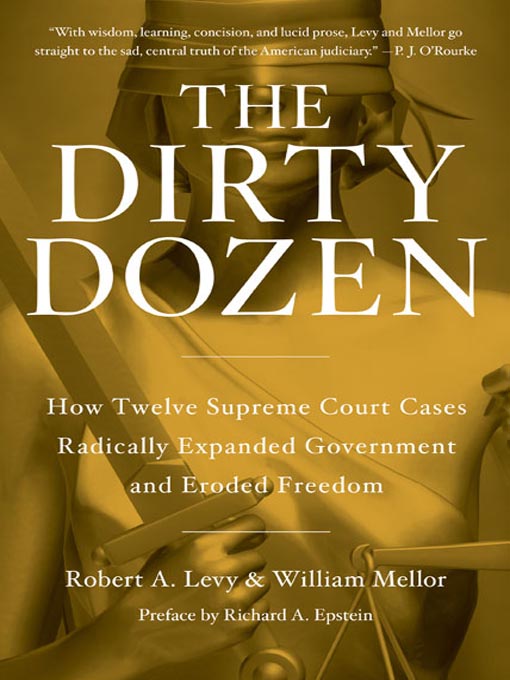The Dirty Dozen takes on twelve Supreme Court
cases that changed American history—and yet are not
well known to most Americans.
Starting in the New Deal era, the Court has
allowed breathtaking expansions of government power
that significantly reduced individual rights and abandoned
limited federal government as envisioned by the
founders. For example:
• Helvering v. Davis (1937) allowed the government
to take money from some and give it to
others, without any meaningful constraints
• Wickard v. Filburn (1942) let Congress use the
interstate commerce clause to regulate even the
most trivial activities—neither interstate nor
commerce
• Kelo v. City of New London (2005) declared that
the government can seize private property and
transfer it to another private owner
Levy and Mellor untangle complex Court opinions
to explain how The Dirty Dozen harmed ordinary
Americans. They argue for a Supreme Court that will
enforce what the Constitution actually says about civil
liberties, property rights, racial preferences, gun ownership,
and many other controversial issues.


